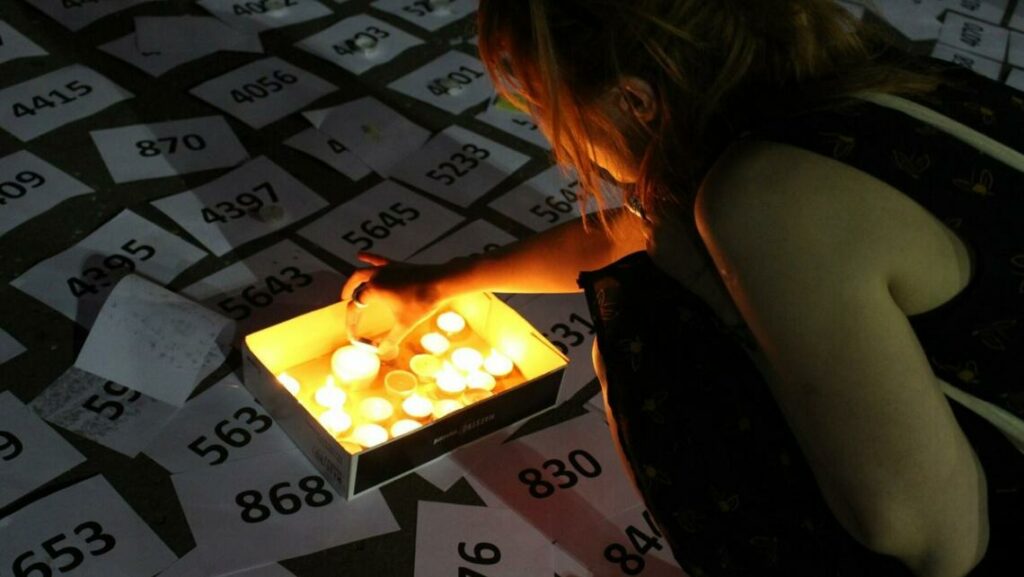Dealing with the Past
Thematic Training for peace and conflict work

Who can register for this training?
The thematic training is designed with several types of participants in mind:
- Practitioners with projects in transitional settings that have been impacted by an episode of mass and / or systemic violence on.
- Practitioners working on processes of healing and reconciliation in communities that have experienced violence.
- Scholars and graduate students seeking to learn about transitional justice, restorative practices, and other approaches to Dealing with the Past, along with an opportunity to apply their learnings to a particular case.
Depending on methods and topic of the training, we limit the number of available spaces to a manageable size (a maximum of 20 participants). Register early to reserve your place!
Latecomers can register until 9 May 2023, we still have a few places available in this training.
Content
Among the most daunting challenges facing societies and communities trying to move on from a history or episode of violence is how to tackle the debilitating, lingering impacts of that violence. Long after a formal peace has been declared, victims, especially, may feel the war still raging – in a relentless demand for justice, and for answers, in the damages and loss that now form part of their everyday life, in the lack of any real change. Dealing with the Past (DwP) comprises creative strategies capable of shifting context – whether through the productive policy compromises that have become known as ‘transitional justice’, the more interpersonal exchanges that make up restorative justice practices, or the tackling of conditions that enable violence and violation to occur at all.
The training covers these three approaches to addressing needs and challenges ensuing from violence, drawing on the Dealing with the Past Conceptual Framework (widely used in Germany’s and Switzerland’s multi- and bi-lateral cooperation abroad); on tools of restorative justice practice; and on scholarly literature from the groundbreaking approach known as Transformative Justice.
Objectives
- To expose trainees to the challem anges to peace that ensue fron episode of mass violence in which gross violations of human rights (GVHRs) have occurred.
- To introduce trainees to the concept of Conflict Transformation (as distinct from Conflict Resolution)
- To establish trainees’ fluency in approaches to DwP and its core concepts, including transitional justice, reparations, truth commissions, and restorative justice.
- To enable trainees to use these terms and theories, along with practical tools drawn from restorative justice practice, in order to analyze and develop a strategy for one contemporary situation of their choosing.
- To expose participants to examples of civil society facilitated DwP initiatives, including victim-offender mediation, restorative circles, truth recovery through oral storytelling within communities, and the use of the arts – including theatre, film music, memorials, images - to help deal with historical trauma.
Key Concepts
- Dealing with the Past
- Truth Commissions
- Reparations, including Guarantees of Non-Recurrence
- Transitional Justice, Restorative Justice, and Transformative Justice
- Victim-Offender Mediation
Workload
- Watching a 40-min pre-recorded lecture introducing core concepts and including historic and anecdotal examples
- Writing a one-page written response applying the concept to their chosen context
- Participating in a weekly, 90-min live session
- Integrating the weekly one-pagers into a short PowerPoint presentation for sharing in the final session.
Methodology
- Trainer delivers a 40-min pre-recorded lecture using PowerPoint in BBB on the coming week’s core concepts, using illustration (available immediately after live session)
- Participants provide one-page written response applying the concept to their chosen context
- Trainer responds in time for participants to prepare for live session
- The 90-min live session comprises a trainer-facilitated, peer discussion as well as breakout groups
In the training, participants use a variety of tools, including the digital learning platform ILIAS, the video conferencing tool BigBlueButton, and the online whiteboard Miro. Participants should therefore have a good internet connection (1 Mbit down/upload or better). A headset is highly recommended. Prior knowledge about the use of these online tools is not required as participants will be invited to a technical introduction to the above mentioned tools before the course starts.
Deliverables
- Webinar 1: please bring an image, poem or phrase that illustrates your understanding of DwP and be ready to share it, in under 2 mins.
- Webinars 2 to 6: a one-page response to the week’s concept (Right to Justice, the Right to Know, the Right to Reparations including Non-Recurrence, Restorative Practices) applying it the context you have chosen.
- For the final week: A capstone presentation that integrates the building blocks of the one- pagers into modest DwP strategy for your chosen context. You will have the following choice: 8 mins to present and receive peer response in the live session; or provide a pre-recorded 5-min clip and have 5 mins for facilitated peer and trainer engagement (note: bonus 2 mins for pre-recorders!). A suggested format for the presentation will be provided.
After a successful participation, participants receive a certificate.
Total expected weekly hours: 5-6 hours per week
Schedule
- Technical Introduction on 15 May 2023 from 12:00 to 13:00 CEST
- Online Live Sessions: 22 May to 26 June 2023 from 12:00 to 14:00 CEST
